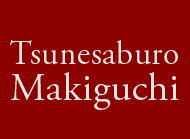
Quotes
To become caught up in immediate realities, and to fail to live and act on the basis of a more holistic view of things, is a myopic way of life. The opposite is a way of life in which one fails to see what is close at hand in proper focus; to declare impossible-to-realize ideals and put nothing into practice. A correctly focused way of life is one in which we embrace vast ideals and have a clearly defined sense of purpose while putting this into practice amidst our day-to-day realities.

If you are unable to trust others and cannot gain their trust, your life is like that of a large tree alone in a field. Isolated and unaided, you are vulnerable to being knocked down by the next great storm. This is the most insecure way of life imaginable.

There are basically three different types of people: those you wish to have around you; those whose presence doesn't make a difference one way or the other; and those whose mere presence disturbs others. Whether at home or in our workplace, we should strive to be the kind of people who are truly necessary and appreciated.

Friendship that is centered around the exchange of money or things is the lowest form of friendship. Helping someone find work or enjoying each other's company is a middle rank of friendship. The highest form of friendship is to be able to warn and counsel a friend to help them overcome some negativity in their lives.

A thousand sheep cannot hold their own against a single lion. A single courageous individual dedicated to the Great Good can accomplish far more important things than a thousand cowards who practice only passive and minimal good. It's not the number, but the quality of people that matters.

The practical consequences of failing to do good are no different from those of doing evil.

If you see a child who has tossed off their blankets in sleep, failing to cover them again is failure to do good. If the child gets a chill and catches cold, the outcome is the same as if you had pulled the covers off them yourself. The outcome of failure to do good is evil.

Rather than force-feeding knowledge from above and making children memorize information, we should focus on sparking their interest in the subjects, helping them develop enthusiasm regarding their studies.

Teachers must not guide students with an arrogant attitude of holding themselves up as a model of greatness to which students should aspire. Rather, they should urge children not to be satisfied merely attaining what the teacher has achieved. It is important to teach children to set their sights on much more accomplished people. The correct attitude for a teacher is a humble one, telling children that you want to advance together with them toward that goal.

Apprehension and evaluation are not the same. [The famous story of the samurai] becoming terrified seeing a ghost in withered pampas grasses is an example arising from misapprehension. We must avoid making judgments about people or events from emotion or supposition. To evaluate on the basis of rumor or reputation is risky. We must avoid evaluating even the words of a spouse or close friend on the basis of misapprehension.

What is the purpose of life? If one were to express this in just a word, it would have to be "happiness." The purpose of education must therefore accord with the purpose of life.

Education is the process of socializing the individual, where "society" is understood as a kind of organism, the encompassing and embracing organization of the human spirit. People are connected as individuals to this group known as society. The individual and group mutually influence each other. Thus, so long as we live in society, individual happiness is unthinkable without a concern for society; in the same way the flourishing of society is unthinkable if the happiness of the individual is disregarded.

The aim of education is not to transfer knowledge; it is to guide the learning process, to equip the learner with the methods of research. It is not the piecemeal merchandizing of information; it is to enable the acquisition of the methods for learning on one's own; it is the provision of keys to unlock the vault of knowledge. Rather than encouraging students to appropriate the intellectual treasures uncovered by others, we should enable them to undertake on their own the process of discovery and invention.

We must avoid making judgments before we understand the reality of a situation. For example, getting angry with a child who has gotten their clothes dirty without asking the reason why this happened. This is an error and it is important that we only evaluate things after we first have an accurate comprehension.

In his writings Nichiren Daishonin states that there is no greater shame than to be praised by fools. When a person who claims to be a Buddhist makes judgments about the fundamental nature and value of things, the standard for that judgment must be the strict law of cause and effect that is taught in Buddhism. You cannot be a person of Great Good if you are swayed by the praise or criticism of others.

The problems of life can only be understood through dialogue. People listening to a lecture or talk will feel that what is being said is not their personal concern. Note that Nichiren Daishonin's treatise, "On Establishing the Correct Teaching for the Peace of the Land," was written in the form of a dialogue.
The above quotes are translated from The Axioms of Tsunesaburo Makiguchi,
compiled by Takehisa Tsuji and published in Japanese in 1979.





 Search
Search


 Top
Top